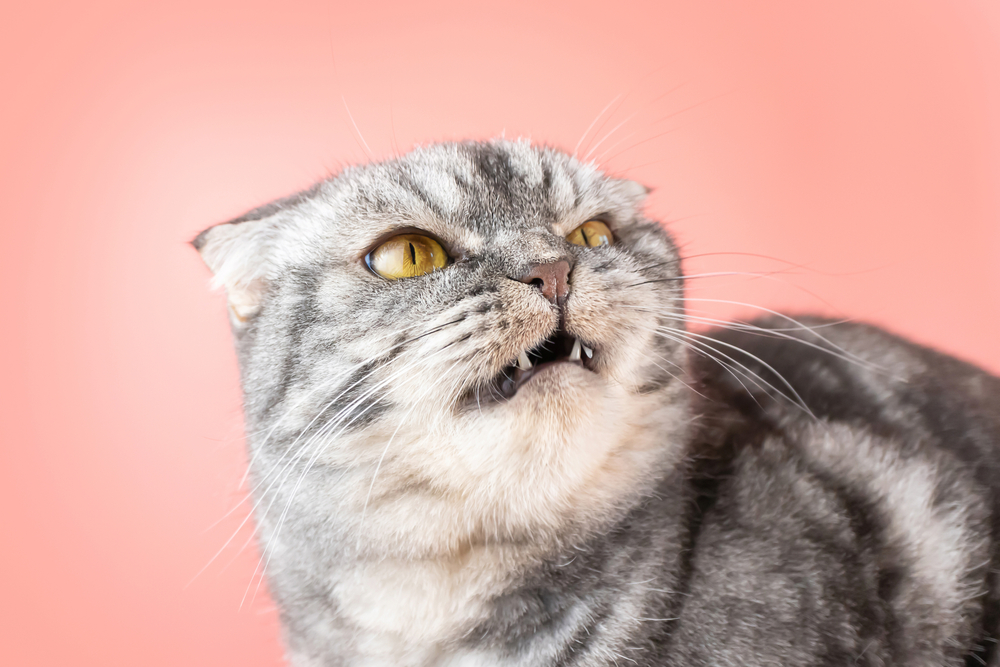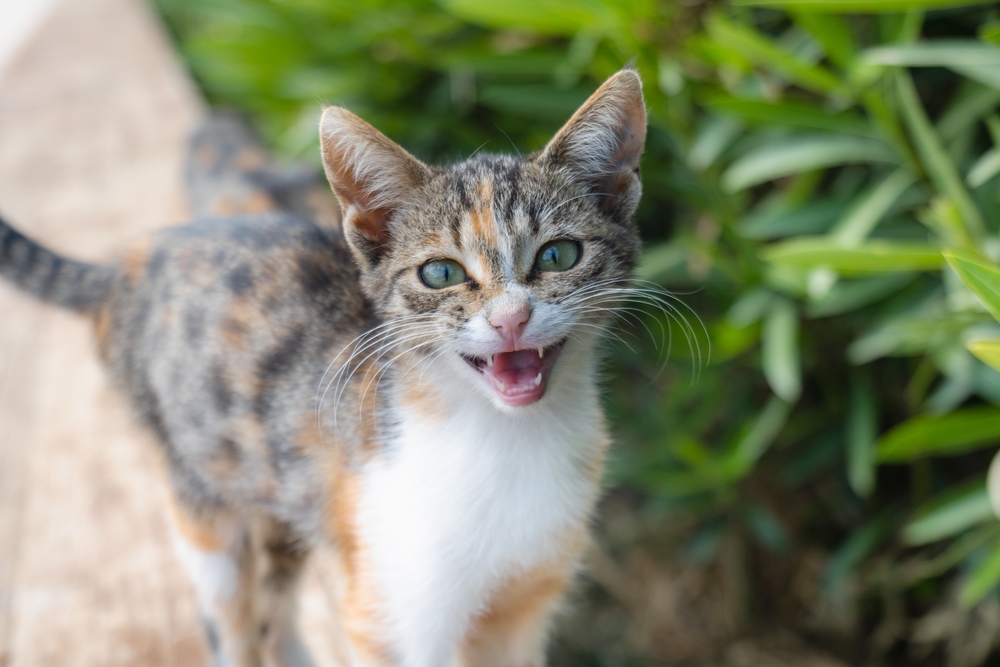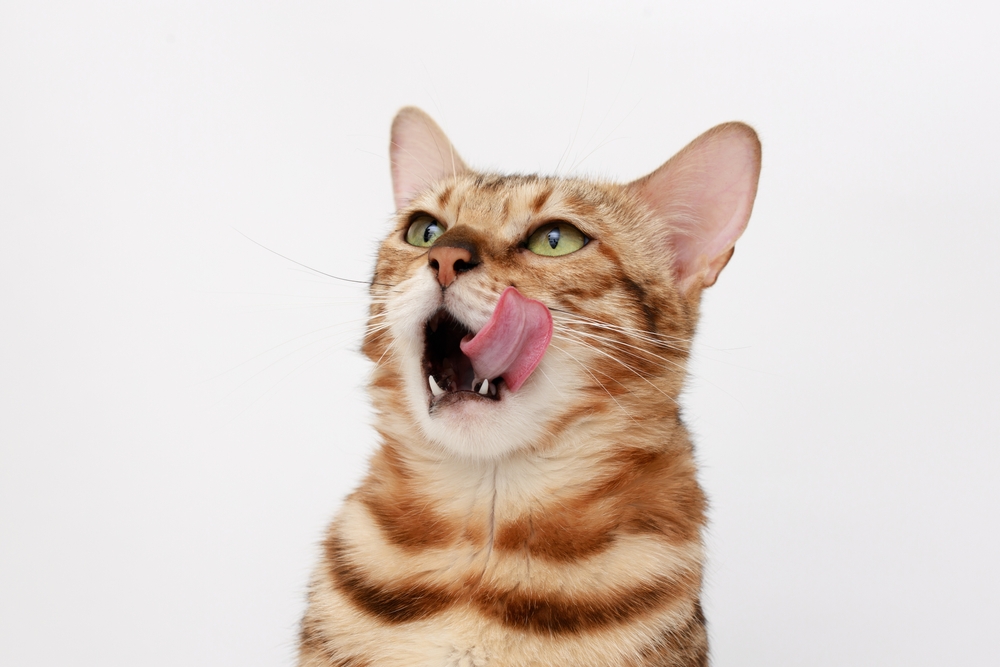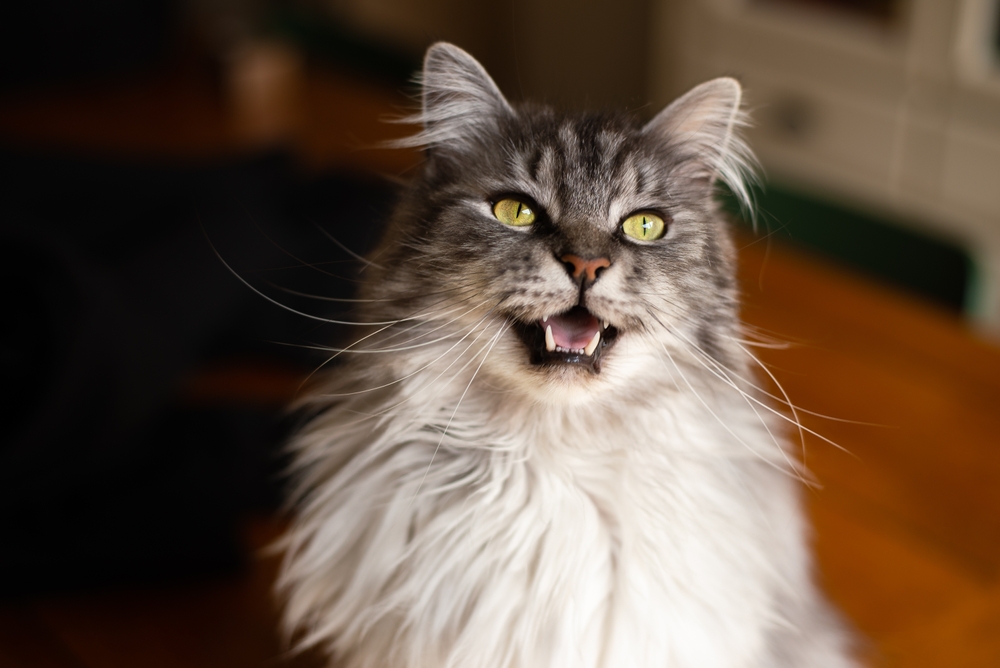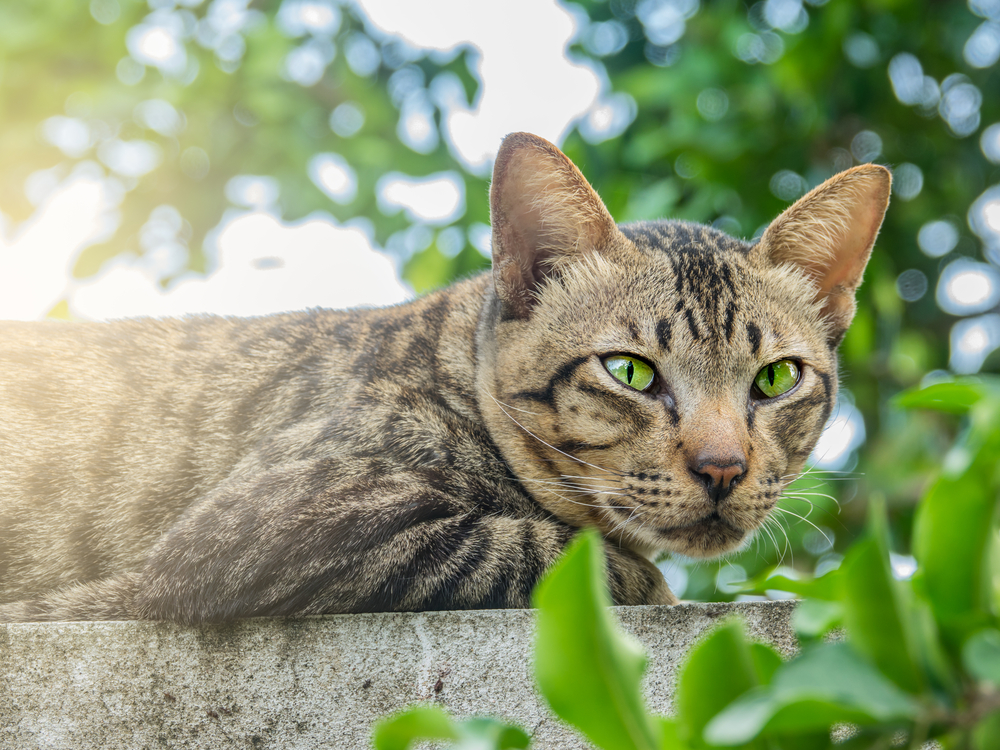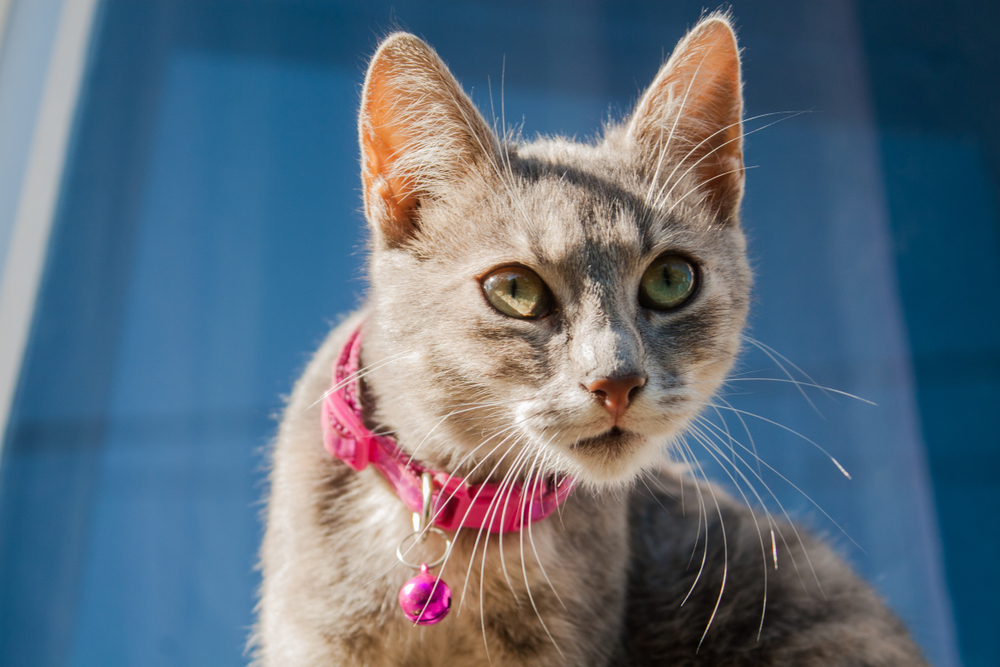📖 Table of Content:
Listen, our feline friends make all kinds of weird noises. After all, that’s the only way they can talk to us, right? If you’ve been a cat parent for a while now, then you know our furbabies can be loud. Now, different noises mean different things, but today, we’ll learn why your cat grunts.
Because they have a lot to say but don’t speak our language, our feline friends turn to meowing, chirping, grunting, purring, and all other adorable quirky things they do. They’ll find a way to get their message across, that’s for sure!
They do everything in their power to communicate with us, and it’s our job to learn how to understand them. All those adorable little things they do are more than just cute video material – they actually have a meaning. And the sooner you learn your fluff’s language, the better it will be for both of you.
Sure, you may look like a crazy cat lady who talks to her feline bestie like you’re fluent in meow, but who cares? The only thing that matters is that you and your furbaby understand each other! The first step in doing so is understanding cat grunts, so let’s wait no longer!
Cat grunts: What do they signify?
Don’t worry, more often than not, grunting is a sign of your kitty being in a friendly mood. You may hear your furbaby make this noise when she’s jumping, eating, or wanting to show you how much she cares. It’s a sound of love and enjoyment! Well, okay, most of the time it is…
Sometimes, grunting can be a sign of some issues or distress that your fluff is trying to share with you. Good luck figuring out which one of these two moods she’s in!
Just kidding, we’re here to help you understand this type of behavior, and identify all of the reasons your kitty may be making grunting noises. Let’s dive right in!
1. She’s sleepy (and irresistible!)
This is definitely the most adorable grunting you’ll hear from your furbaby. Seriously, just thinking about it makes my heart melt! You’ll just want to cuddle her and kiss her sleepy little face all over.
Do you know when you have that really good, relaxed sleep? You know, the one that makes you feel like you’re a baby napping the day away. Our feline friends are a lot like us when it comes to sweet and sound sleeping.
When your sleepy furbaby grunts, it’s as if she’s saying, “Ah, life is so good, and I’m so comfy right now.” She’s in a state of pure bliss and peace, and she’s making that loud and clear. You can hear these adorable grunts when your furry friend is curled up all cozy, ready for a well-deserved nap.
2. It’s her way of saying “I love you“
The biggest mistake you can make as a cat parent is thinking that purring is the only way your kitty shows you she loves you. Oh, no. She’ll do it in many ways, including softly grunting.
Although it may sound like she’s annoyed or angry at times (more on that shortly), cat grunts can also mean “I love you.” How adorable is that? It can mean other things as well, of course, which is why it’s important that you also pay attention to the rest of her body language.
When you hear your kitty grunting, don’t ignore the way her body is. If she’s relaxed and she gives you some purrs as well, it’s a lovely sign that she’s in a good mood and that she’s simply trying to let you know she appreciates you.
Give her some kisses, soft pats, and let her cuddle next to you. You can relax knowing your fluff feels loved and taken care of. You’re doing a great job as a cat parent!
3. It’s time to give her some attention
When our feline friends want something from you, they’ll always find a way to let you know. Yes, even if it means they’re in the mood to spend some time with you. If you hear your cat grunting, think about the last time you played with her.
I get it, it’s easy to get distracted by work, friends, family, and chores. But your feline buddy needs his favorite human, too. Although cats are known as the introverts of the animal world, even the most withdrawn kitty will need her fair share of attention from time to time.
Again, don’t forget to take note of her body language. If your cat is grunting while pushing her head into the palm of your hand, or trying to get as close to you as possible, it’s a good signal that she wants some quality time.
Our feline friends don’t need much. Try to take a break from whatever you’re doing, focus on your furbaby, and devote some of your time to her. It won’t take too long, and both of you will enjoy every second of it.
4. She’s giving you a warning
No matter how friendly and caring your little purrer is, you can’t ignore the fact that she’s also a hunter. It’s in her nature, and there’s very little she can do about it. Except, maybe, give you a warning when she’s about to unleash that side of her.
When your little pawdator spots a butterfly flapping its wings on your window, it’s game on for her. Now, she doesn’t want to scare you with her incredible bug-hunting skills, so she’ll give you a warning in the form of a grunt.
See it as her way of saying, “Watch out! I’m about to do some crazy acrobatics here!” Yes, even if it’s just her launching herself to the top of your sofa. It’s more adorable than intimidating, but she doesn’t have to know that!
5. She just finished her meal
We all know that feeling when we finish a good meal. It’s all fun and games until your body starts to digest everything you ate in such a short period of time. Our kitties go through a similar thing.
If your fluff seems uncomfortable after eating, that grunt just may be the gurgling of bodily juices in her tummy. Yep, we’re talking gas, constipation, or even a touch of diarrhea – all that fun stuff.
Don’t panic! These things happen from time to time. If your kitto isn’t sick, she’ll be back to normal within a day. If she looks relaxed and content after eating and she lets out a grunt, it means she’s happy to take a good old nap like a cherry on top after that delicious meal.
6. She’s angry and needs you to give her a break
Ah, the grunts of an angry cat! When your furball is all worked up, her grunts can take on a whole new meaning. She’s not happy, and she wants you to know that!
Just picture your cat all puffed up, her tail creating wind as she swings it side to side, and her eyes locked on her target. That’s where grunting comes in, to complete the whole experience. These grunts, however, are a lot deeper, and they may be accompanied by a snort, too.
When this happens, it’s your cue to leave your fluff. She’s telling you to back off, and you should listen to her. Give her some space and let her cool down. In no time, she’ll be back on your lap ready to receive some cuddles and love.
7. It may be a sign of obesity
If your cat is carrying some extra pounds, her grunts may not be as cute as they seem. Overweight cats can struggle with excessive grunting. After all, it can’t be easy carrying all that chunk around!
When your cat gains excessive weight, it puts pressure on her airways. She has no other option but to grunt whenever she breathes. Obesity is a pretty common problem for house kitties, and it’s definitely no laughing matter, no matter how funny or adorable your podgy friend may look.
If your cat has become chunkier and her breathing is louder, it may be time for a chat with her vet. They’ll help you come up with the right weight loss program for your feline companion.
8. She may be in pain
All jokes aside, if your feline friend continues to grunt and it’s impossible for you to ignore it, it could be a sign that something’s not right. I know this was the last thing you wanted to hear, but your kitty may be trying to tell you she’s in pain.
If you suspect that’s the case, pay attention to any patterns. Does she grunt when she’s in a specific position, or when she moves a certain way? Take notes and try to figure out what’s causing her pain. It will come in handy when you visit the vet.
Sharing these details will help your vet get to the bottom of your cat’s problem and find the right solution. So, pay attention, take notes, and help your fluff get back on her feet.
